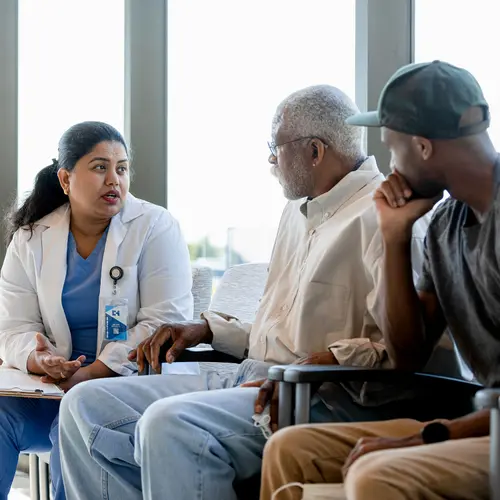Most people know Alzheimer's disease affects the memory. But the symptoms can be physical as well as mental.
It can change the way you walk, talk, and how your body works. It’s important to be aware of what can happen as the disease progresses. This will help you stay ahead of the changes you and your loved ones may face.
The Brain and Body Connection
Though the cause of Alzheimer’s is not known, doctors think the symptoms of the disease are caused by a buildup of harmful proteins in your brain called amyloid and tau. These proteins form large clumps, called tangles and plaques. They get in the way of normal brain function and kill healthy cells.
The damage usually starts in the area of your brain that forms memories. People with early-stage Alzheimer's disease often have trouble remembering things. As the disease gets worse, the plaques and clusters also appear in the parts of the brain in charge of bodily behaviors.
Everyday activities like walking, eating, going to the bathroom, and talking become harder.
The effects of the disease will differ for each person as it gets worse. The pace can be slow. Some people live up to 20 years after a diagnosis. The average life expectancy, though, is 4 to 8 years.
Physical Changes to Expect
Which symptoms you have and when they appear are different for everyone.
Some people have physical problems before serious memory loss.
In one study, people who walked slowly and had poor balance were more likely to be diagnosed with Alzheimer's disease in the following 6 years.
Some of the changes you might experience are:
Challenges of Care
Over time, most people with Alzheimer's lose the ability to take care of themselves. You may need help with basic things such as brushing your teeth, washing your hair and body, and changing your clothes.
It might be hard to have a meaningful conversation. Caretakers are encouraged to limit communication to simple subjects and to ask questions that have definitive answers. In the later stages, you might lose your ability to speak.
It might become hard to chew food and swallow. That raises the risk of choking or inhaling food. Your meals and snacks will need to be cut into small pieces or puréed. If you don't get enough to eat and drink, you could become malnourished or dehydrated. Your diet can be adjusted to make eating safe and nutritious. Drinkable vitamin and protein supplements can help you get nutrients.
At some point, you may need to move to a residential care facility to get the care you need. Talk to your doctor and your family about the best location for your needs.
How the Body Shuts Down
As your body declines it raises the risk for other health problems.
- Infections may develop as your immune system begins to fail.
- Pneumonia can set in, especially if you inhale food or drinks by accident.
- Injuries from falls are more likely to happen.
Most people with Alzheimer's disease die from pneumonia, another infection, or a heart attack.
It's best to have conversations early on about how you'd like to be cared for. These conversations can be hard, but having a plan can make it easier for you and your family.

